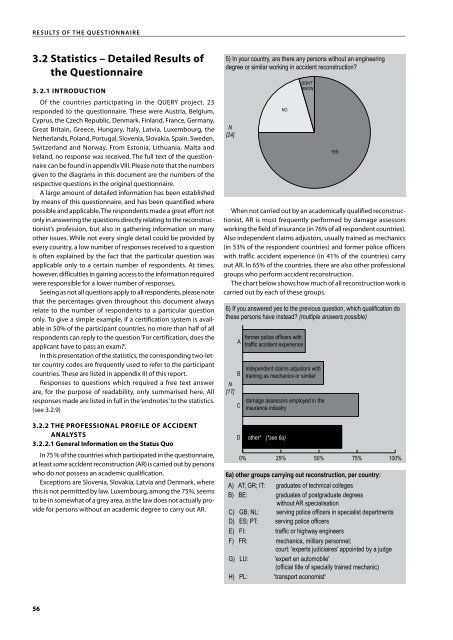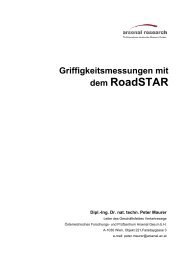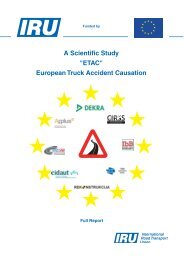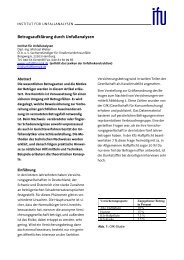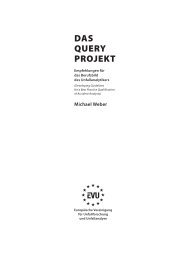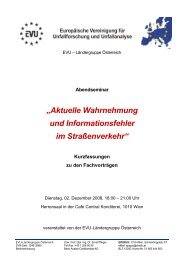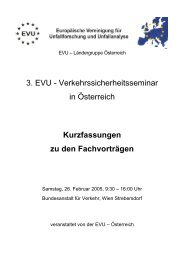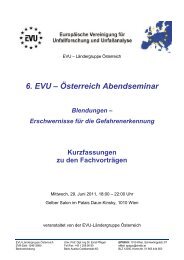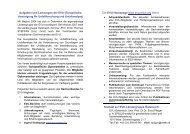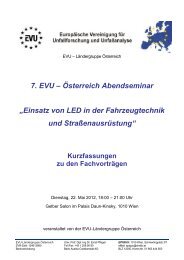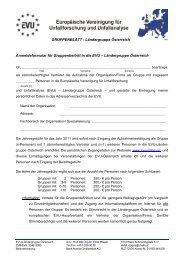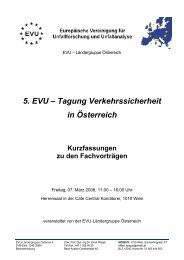THE QUERY PROJECT - European Commission - Europa
THE QUERY PROJECT - European Commission - Europa
THE QUERY PROJECT - European Commission - Europa
Create successful ePaper yourself
Turn your PDF publications into a flip-book with our unique Google optimized e-Paper software.
R E S u lt S o f t h E Q u E S t I o n n A I R E<br />
6<br />
. Statistics – Detailed Results of<br />
the Questionnaire<br />
. .1 INTRODUCTION<br />
Of the countries participating in the <strong>QUERY</strong> project, 23<br />
responded to the questionnaire. These were Austria, Belgium,<br />
Cyprus, the Czech Republic, Denmark, Finland, France, Germany,<br />
Great Britain, Greece, Hungary, Italy, Latvia, Luxembourg, the<br />
Netherlands, Poland, Portugal, Slovenia, Slovakia, Spain, Sweden,<br />
Switzerland and Norway. From Estonia, Lithuania, Malta and<br />
Ireland, no response was received. The full text of the questionnaire<br />
can be found in appendix VIII. Please note that the numbers<br />
given to the diagrams in this document are the numbers of the<br />
respective questions in the original questionnaire.<br />
A large amount of detailed information has been established<br />
by means of this questionnaire, and has been quantified where<br />
possible and applicable. The respondents made a great effort not<br />
only in answering the questions directly relating to the reconstructionist’s<br />
profession, but also in gathering information on many<br />
other issues. While not every single detail could be provided by<br />
every country, a low number of responses received to a question<br />
is often explained by the fact that the particular question was<br />
applicable only to a certain number of respondents. At times,<br />
however, difficulties in gaining access to the information required<br />
were responsible for a lower number of responses.<br />
Seeing as not all questions apply to all respondents, please note<br />
that the percentages given throughout this document always<br />
relate to the number of respondents to a particular question<br />
only. To give a simple example, if a certification system is available<br />
in 50% of the participant countries, no more than half of all<br />
respondents can reply to the question ‘For certification, does the<br />
applicant have to pass an exam?’.<br />
In this presentation of the statistics, the corresponding two-letter<br />
country codes are frequently used to refer to the participant<br />
countries. These are listed in appendix III of this report.<br />
Responses to questions which required a free text answer<br />
are, for the purpose of readability, only summarised here. All<br />
responses made are listed in full in the ‘endnotes’ to the statistics.<br />
(see 3.2.9)<br />
. . ThE PROfESSIONAl PROfIlE Of ACCIDENT<br />
ANAlYSTS<br />
. . .1 General Information on the Status Quo<br />
In 75 % of the countries which participated in the questionnaire,<br />
at least some accident reconstruction (AR) is carried out by persons<br />
who do not possess an academic qualification.<br />
Exceptions are Slovenia, Slovakia, Latvia and Denmark, where<br />
this is not permitted by law. Luxembourg, among the 75%, seems<br />
to be in somewhat of a grey area, as the law does not actually provide<br />
for persons without an academic degree to carry out AR.<br />
5) In your country, are there any persons without an engineering<br />
degree or similar working in accident reconstruction?<br />
N<br />
[24]<br />
NO<br />
DON'T<br />
KNOW<br />
When not carried out by an academically qualified reconstructionist,<br />
AR is most frequently performed by damage assessors<br />
working the field of insurance (in 76% of all respondent countries).<br />
Also independent claims adjustors, usually trained as mechanics<br />
(in 53% of the respondent countries) and former police officers<br />
with traffic accident experience (in 41% of the countries) carry<br />
out AR. In 65% of the countries, there are also other professional<br />
groups who perform accident reconstruction.<br />
The chart below shows how much of all reconstruction work is<br />
carried out by each of these groups.<br />
6) If you answered yes to the previous question, which qualification do<br />
these persons have instead? (multiple answers possible)<br />
A<br />
B<br />
N<br />
[17]<br />
C<br />
D<br />
former police officers with<br />
traffic accident experience<br />
independent claims adjustors with<br />
training as mechanics or similar<br />
damage assessors employed in the<br />
insurance industry<br />
other* (*see 6a)<br />
0% 25% 50% 75% 100%<br />
6a) other groups carrying out reconstruction, per country:<br />
A) AT; GR; IT: graduates of technical colleges<br />
B) BE: graduates of postgraduate degrees<br />
without AR specialisation<br />
C) GB; NL: serving police officers in specialist departments<br />
D) ES; PT: serving police officers<br />
E) FI: traffic or highway engineers<br />
F) FR: mechanics, military personnel;<br />
court: 'experts judiciaires' appointed by a judge<br />
G) LU: 'expert en automobile'<br />
(official title of specially trained mechanic)<br />
H) PL: 'transport economist'<br />
YES


